
Women and children are disproportionately affected by natural disaster and war - pregnant women face dangerous deliveries and, in unprotected refugee settlements, rape, trafficking and gender-based violence increase. IPPF delivers essential lifesaving services for women, men and children in times of crisis.
Articles by Emergencies
Annual Performance Report 2015
When IPPF refocused efforts with the three Changes Goals – Unite, Deliver and Perform – an ambitious commitment was made to double the number of sexual and reproductive health services provided between 2010 and 2015. We are proud to announce that 175.3 million services were provided in 2015, only 1 per cent below the goal of 176.4 million. This is a remarkable achievement and a result of Member Associations’ unwavering efforts and commitment. More than eight in ten clients who received services from IPPF were poor and vulnerable, while 44 per cent of our services went to young people. In 2015, Member Associations and collaborative partners in 48 countries contributed to 82 legal and policy changes that support or defend sexual and reproductive health and rights. At the regional and global levels, IPPF’s advocacy contributed to 22 policy changes. The highlight of our advocacy achievements was the inclusion of gender equality and women’s empowerment, sexual and reproductive health, and reproductive rights in the 2030 Agenda for Sustainable Development. IPPF continued to invest in learning, business processes and information management systems to drive performance and value for money. We are increasingly using data to guide decision making and to ensure accountability to our clients, donors and partners.
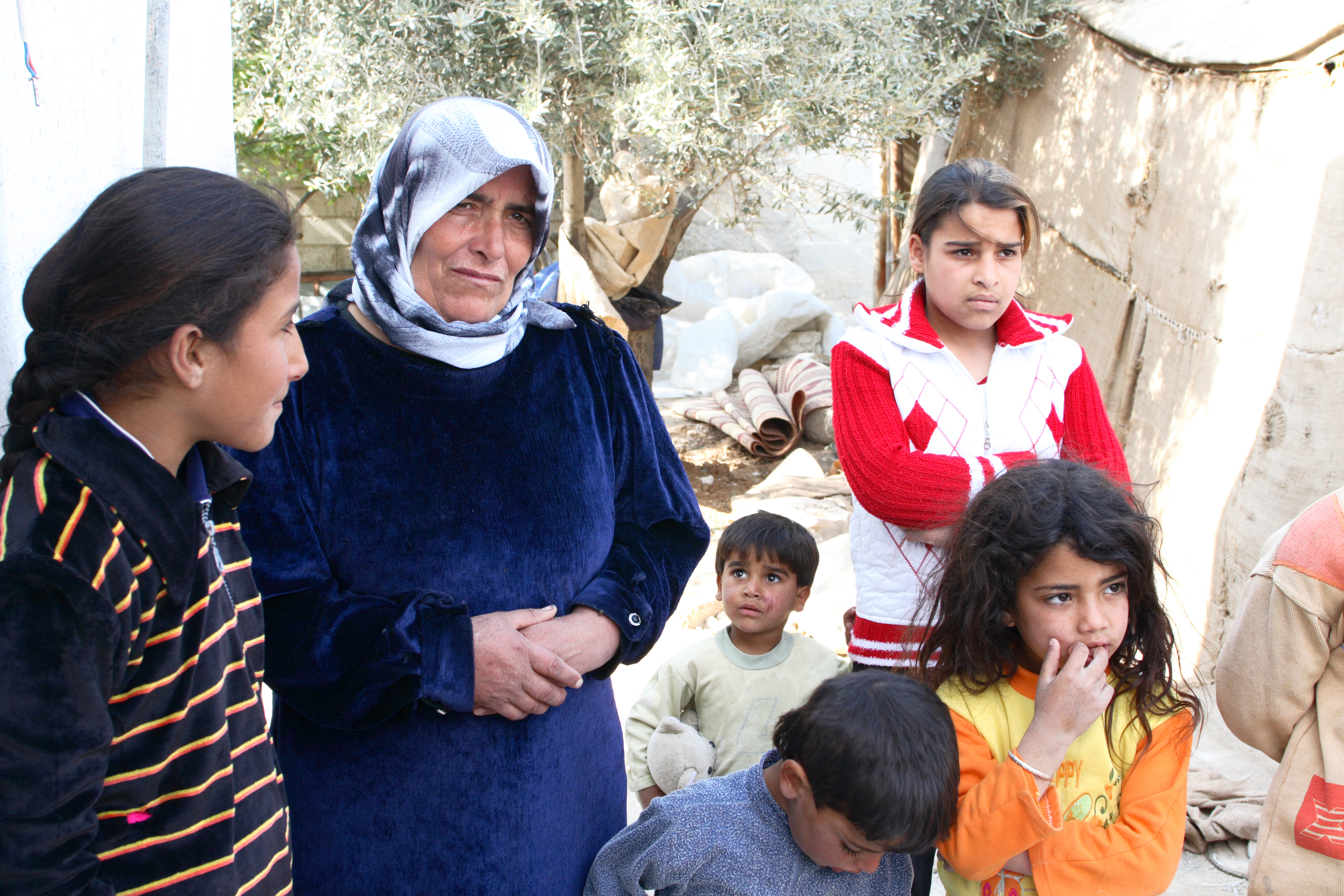
Global call for urgent action on sexual and reproductive health in humanitarian settings
Istanbul, Turkey- Tewodros Melesse, Director General of International Planned Parenthood Federation, Babatunde Osotimehin Executive Director, United Nations Population Fund, World Health Organisation and senior leaders from the Governments of Australia, Sweden, Norway, Netherlands and Jordan called for urgent action to include sexual and reproductive health in the immediate lifesaving interventions in crisis at the World Humanitarian Summit today. “Too often, sexual and reproductive health and rights in emergencies are overlooked and critically underfunded. It is a life saving intervention that protects dignity and keeps people protected when their world has been turned upside down. We need to ensure that there is a coordinated response on the ground which has the same status as other humanitarian response like food, shelter, water and sanitation. This is a minimum set of standards for a sexual and reproductive health frontline actions. We urge governments to factor to recognise and implement reproductive health into their own humanitarian response delivery.” said Tewodros Melesse, IPPF Director General. Reproductive health issues are the leading cause of women’s ill health and death worldwide and these problems are compounded during a crisis. Around 60 percent of preventable maternal deaths take place in crises and fragile settings. Women and girls are disproportionately affected by humanitarian crises exposed to early marriage, trafficking, rape, forced pregnancies, unattended service delivery during complicated pregnancies and delivery. 125 million people are affected by crises. One quarter of those people are women of reproductive age – that’s 31 million and women are 14 times more likely to die than men in a crisis. IPPF is calling for donor governments to ensure that services are more equitably distributed between conflict zones and natural disasters. In particular in conflict areas, lack of funding leads to worse sexual and reproductive health outcomes for women and girls. Rajat Khosla, Human Rights Advisor Reproductive Health, World Health Organization spoke of the urgent need to prioritize sexual and reproductive health in humanitarian settings, he said “We are now looking at people who are affected for 17 to 20 years by a crisis. We can no longer operate a business as usual approach. We need to change to a comprehensive health response that includes sexual and reproductive health and rights that leaves no one behind”. IPPF's new report “The Forgotten Priority: Sexual and reproductive health in crises” launched at the World Humanitarian Summit.

IPPF Humanitarian Report
Gender and crisis: the statistics
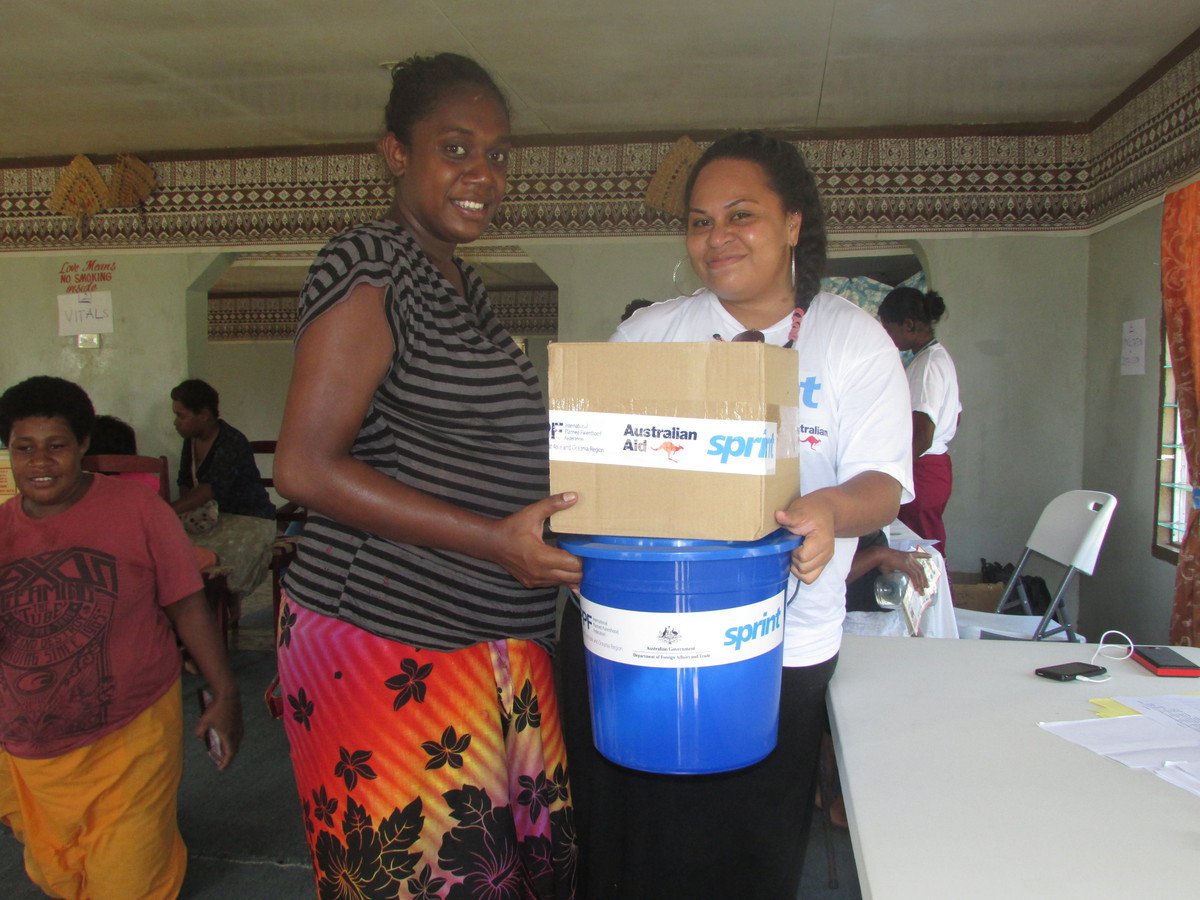
Fiji update
One month on the Cyclone Winston hit Fiji, IPPF-SPRINT is still providing sexual, reproductive and maternal care to cyclone-affected population.
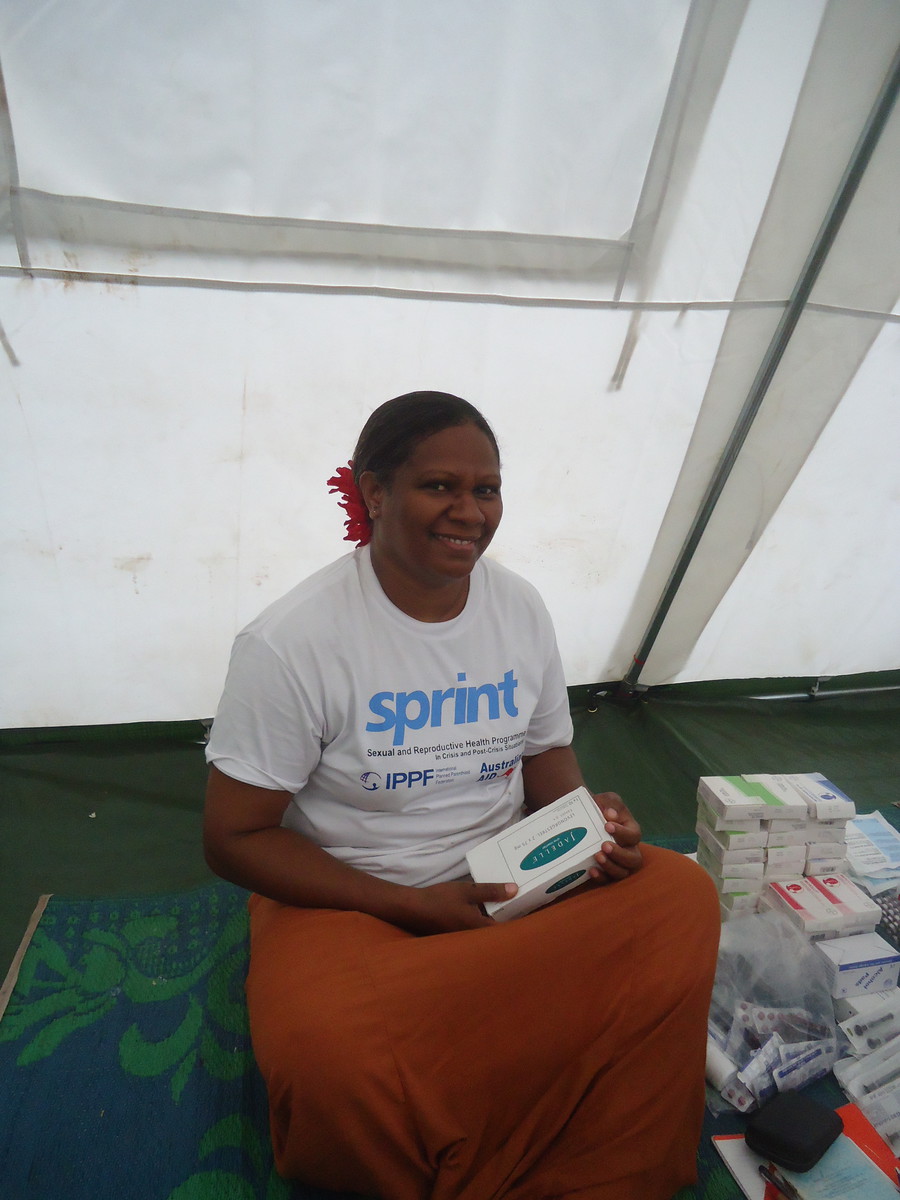
Overcoming barriers to family planning in Vanuatu: Julie's experience at IPPF-SPRINT
Julie was a midwife with the Ministry of Health for 20 years before she joined the Vanuatu Family Health Association (VFHA) as nurse and project manager for IPPF's SPRINT Initiative response in Vanuatu. When Cyclone Pam hit Vanuatu, the SPRINT Initiative and VHFA started providing life-saving services to the Island, Tanna, which was the population worst affected by the typhoon. Many communities there live remotely, in grass huts, with no immediate access to medical care. Julie was there with the VFHA team. “When I first came here we used the kitchen to operate from. On my second trip, we created a clinic in our youth centre, and used the nearby health post for clinical procedures. Soon we saw more patients pouring in, which created a huge demand for space." Health conditions are very low. Even before the cyclone hit the island, it was reported that the average mother loses two pregnancies each, in her lifetime. Every person in the village knows at least one mother who has died during child birth. Access and knowledge to family planning is overlooked as traditional practices are used first. As Julie explains, advocating about family planning is a challenge in the area, also for language barriers. “Talking about birth-spacing and talking in the regional dialect of Tanna is a problem. Most of us in Vanuatu speak Bislama, but people here in Tanna aren’t well versed with it. However, we try our level best with all possible methods including sign language and demos to impart knowledge about family planning.” Family planning services are just a part of the IPPF-SPRINT Cyclone Pam response, that also included general health check-up, counselling and awareness about Sexual and Gender Based Violence, maternal care and awareness and prevention of HIV and Sexually Transmitted Infections (STI).

Losing your home shouldn’t mean losing your dignity: meeting the needs of women in disaster zones
IPPF’s medical mission team was first on the ground in Nataleira, after the Cyclone Winston hit Fiji thanks to the SPRINT initiative and additional funding from the Government of Australia. Here Ana and Kini talk about the aftermath, the importance of medical checks, dry clothes and dignity kits. Anasimeci Marama, a 44-year-old mother, lost everything during the Cyclone Winston that hit Fiji two weeks ago. Originally from Nalidi in the province of Ra, Ana moved to Nataleira after her marriage and lives in the village with her husband and their four children. She recalls the terrifying night when the cyclone hit as the ‘scariest of my life’. Their home was completely destroyed leaving them no option but to run for their lives. Carrying her nine-month old daughter, Ana, and her other three children she sought shelter at the village cemetery. After two days of what she describes as her ‘most heartbreaking experience’, Anasimeci finally managed to find dry clothes for her nine-month old daughter, while everyone else in her family waited until Monday to have a change of clothes. Thanks to the village chief, Ana learnt about the IPPF-SPRINT’s reproductive health medical mission, where she received health checks and reproductive health information. “The response of the IPPF medical mission team is a godsend”, the village chief told us. Kinisimere Bote gave birth to her third child only a week before Cyclone Winston hit Nataleira, the village where she has lived since childhood. It destroyed her home. The whole family had to run from what Kini calls “the most horrific storm”. Soaking wet, she and her three children found refuge at another relative’s home, where they stayed until the storm died down. Like many other villagers they were stuck in wet clothes for days. IPPF medical mission were the first to offer Kini and her baby medical checks. In addition to the check-ups, Kini and her family received ‘dignity kits’. These essential kits contain basic, culturally-appropriate hygiene and protection that displaced women need, items such as a bucket, sanitary towels, maternity pads, toothbrush, soap, a sarong, slippers and torch and whistle. The torch and whistle are to reduce vulnerability. Women are especially vulnerable in camps – often the paths to latrines are unlit at night, leaving women and girls vulnerable to sexual attack. If you want to help people like Ana and Kini who need shelter and healthcare after the cyclone, you can make a donation: http://www.ippf.org/donate I should be the last person to say so, but no social platform or technology will never beat the inner pleasure of a piece of paper and a pencil. Since 2007, SPRINT (Sexual and Reproductive Health Program in Crisis and Post-Crisis Situations) has responded to 61 emergencies and has reached over 754,000 beneficiaries across 95 countries across Asia, Africa, and the Pacific.
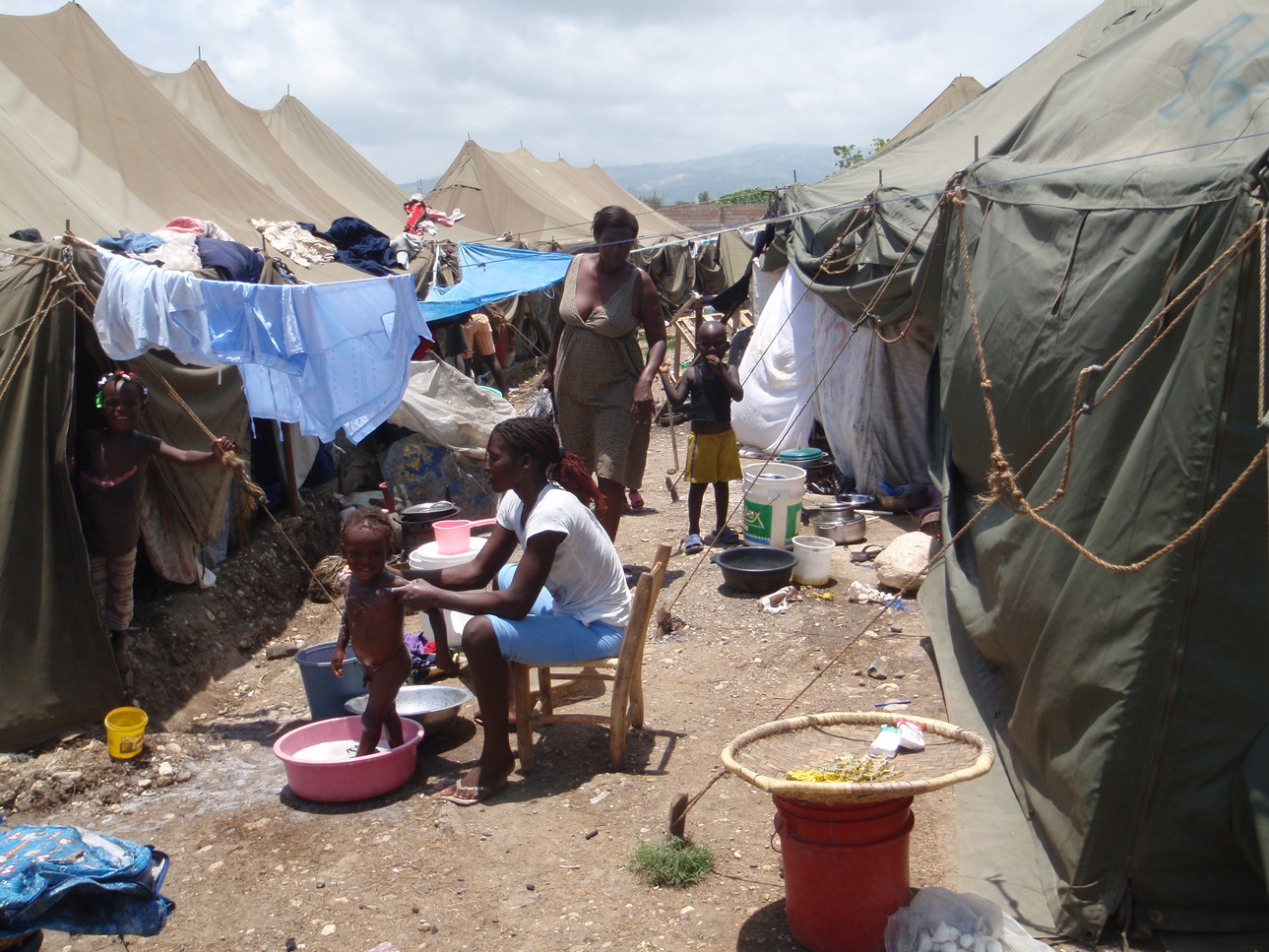
IPPF support UN’s vision for tackling humanitarian crises
The International Planned Parenthood Federation welcomes the United Nations Secretary General’s humanitarian report which he delivered today. (February 9th) Ban Ki-Moon outlined five core responsibilities for the international community in a report which set out his vision ahead of the world humanitarian summit in May. These included better political leadership, protection for civilians, respect for humanitarian law, inclusive policies to make sure no one is left out, more flexibility and joined-up thinking from the aid community. He said the aid industry and his own organisation needed to urgently reform so they could react more effectively to today’s many crises. Director General, Tewodros Melesse said: "We strongly agree with the vision laid out by the Secretary General. At IPPF, we believe that there needs to be a serious rethink when it comes to the humanitarian response to the increasing number of crises around the world. “From our perspective we think it is essential that sexual and reproductive health and rights are included in the humanitarian response.” The figures for humanitarian crises are dramatic. More than a billion people alive today have seen their lives upended by crisis, war, instability; epidemics and disasters have left a long trail of turmoil and destruction. More than 100 million people in need of humanitarian assistance We know that a quarter of these are women and girls aged between 15 and 49 who are heightened risk of sexually transmitted infections, including HIV; unintended, unwanted pregnancy; maternal death and illness and sexual- and gender-based violence. The statics show that 56 per cent of maternal and child deaths take place in fragile settings, many of them affected by conflicts and recurring natural disasters. Over the past decade, IPPF has reached millions of people during floods, conflicts, earthquakes, cyclones when health care systems have often collapsed. At these moments IPPF Member Associations continued to serve the unreachable particularly women which are three-quarters of IPPF clients. We have an organizational strategy to address sexual and reproductive needs before, during and after humanitarian crises. IPPF’s first response is with its Minimum Initial Service Package, which is life-saving, and then IPPF transitions to its Integrated Package of Essential services, which is life-changing. Often our intervention in the aftermath of humanitarian disasters ensures that the sexual and reproductive health situation is better after the crisis than before.

Syria must not be a silent crisis for women and girls says IPPF
In reaction to yesterday’s pledges made from donor governments to Syria's aid conference in London, IPPF Director General Tewodros Melesse said more action should be taken to ensure that sexual and reproductive health and rights are at the centre of humanitarian efforts. Mr Melesse stated that “We have seen some great progress and we must celebrate that governments have come together to tackle one of the largest humanitarian crises we have seen in a long time. But we must not forget that in the response, sexual and reproductive health services should also be a top priority. Women and girls are disproportionately influenced by humanitarian crises exposed to early marriage, trafficking, rape, forced pregnancies, unattended service delivery during complicated pregnancies and delivery. We could save lives by putting money and efforts into an integrated comprehensive package on reproductive health into the standard humanitarian response. IPPF has been doing this for years, our staff work on both sides of the border and on the frontline. Beyond the immediate crisis we also work with those affected for the long term”. IPPF in Syria In Syria 46,500 women will suffer gender based violence, including rape, as a result of the ongoing conflict. This shows a great need to ensure that the human rights of women and girls are protected and able to access sexual and reproductive healthcare. IPPF Member, the Syrian Family Planning Association is on the front line when it comes to dealing with the less-reported consequence of every war- sexual and reproductive health and rights. Syrian Family Planning Association Executive Director Dr. Lama said “ When a woman comes to our services she is typically lost and without hope. Our indicator of success is that we help the hopeless to have hope. We need more support to sustain and expand our services and to maintain the protection services we provided full of confidentiality and confidence. " Over the last 10 years, IPPF has reached millions of people during floods, conflicts, earthquakes, cyclones. When health care often collapsed, our Member Associations continued to reach the underserved, which makes three quarters of IPPF clients. For more information or interviews contact press office 02079398227
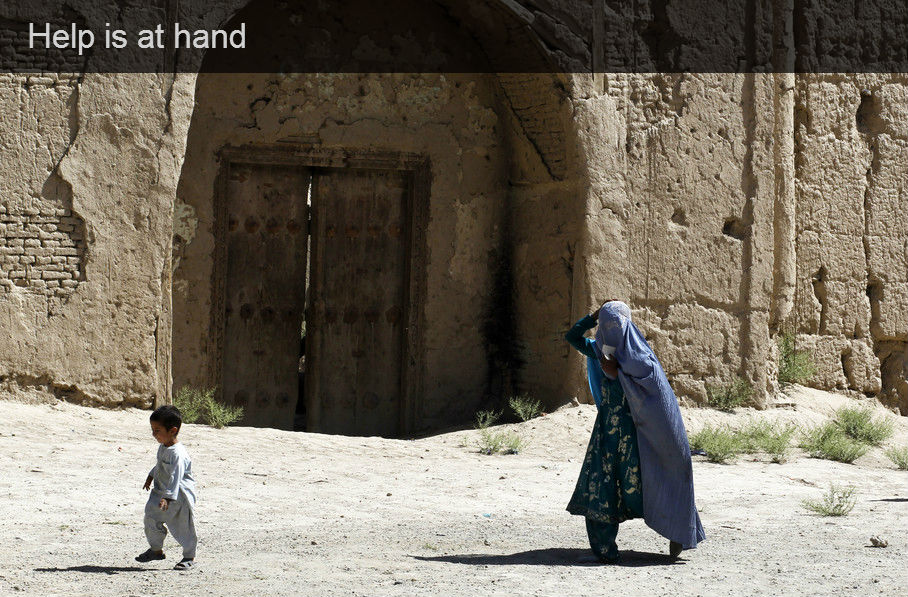
A matter of life and death: IPPF's humanitarian response
Today, the Danish Family Planning Association (DFPA) together with the Danish All-Party Parliamentary Group (APPG) on Sexual and Reproductive Health and Rights, and the Danish Ministry of Foreign Affairs convened a conference with the International Planned Parenthood Federation (IPPF) on the challenges of sexual and reproductive health and rights (SRHR) in humanitarian crises. HRH the Crown Princess of Denmark and the United Nations Population Fund (UNFPA) were also in attendance. HKHK Mary: women are not vulnerable in hum crises because they are weak but because they lack equality #SRHRinCrises pic.twitter.com/EOhV38IpBi — Mette Gjerskov (@MetteGjerskov) February 4, 2016 More than 100 million people are in need of humanitarian assistance. It is estimated that 26 million are women and adolescent girls of reproductive age of which 500 die every day from complications related to pregnancy and childbirths. For example, the Syrian civil war has resulted in a 39% rise in maternal mortality since 2010 and gender-based violence is affecting at least 7 out of 10 women in some crisis settings. This shows a great need for humanitarian actors to ensure that the human rights of women and girls are protected and able to access sexual and reproductive healthcare. // IPPF: saving lives in crises Right now more than 250,000 women and girls need help. IPPF provides the emergency response needed, like family planning, which can reduce maternal deaths by 33%. SEXUAL & REPRODUCTIVE HEALTH SERVICES SAVES LIVES. AND IS A HUMAN RIGHT. Posted by IPPF on Thursday, 4 February 2016 The increasing number of humanitarian crises calls for serious rethinking of the current humanitarian response. The status of sexual and reproductive health and rights (SRHR) violations in humanitarian crises must be confronted and prevented. Over the past decade, IPPF has reached millions of people during floods, conflicts, earthquakes, cyclones when health care often collapsed, IPPF Member Associations continued to serve the unreachable particularly women which make three quarters of IPPF clients. We have an organizational strategy to address sexual and reproductive needs before, during and after humanitarian crises. IPPF starts with its Minimum Initial Service Package, which is life-saving, and transition to its Integrated Package of Essential services, which is life-changing. This ensure that a sxual and reproductive health situation is better after the crisis than before. @LcrTrc Crown Princess & @ippf CEO champion #women's #health & #rights in #humanitarian crisis settings pic.twitter.com/4ajLr0rkXg — Matthew Lindley (@t__box) February 4, 2016 Director general, Tewodros Melesse said, "Access to these services,especially in the midst of war or natural disaster, is a human right which does not only saves lives in the short run, but also helps build resilience amongst refugees and displaced people. It’s one of the most important aspects of humanitarian assistance that is often forgotten when disaster and conflicts strike."







